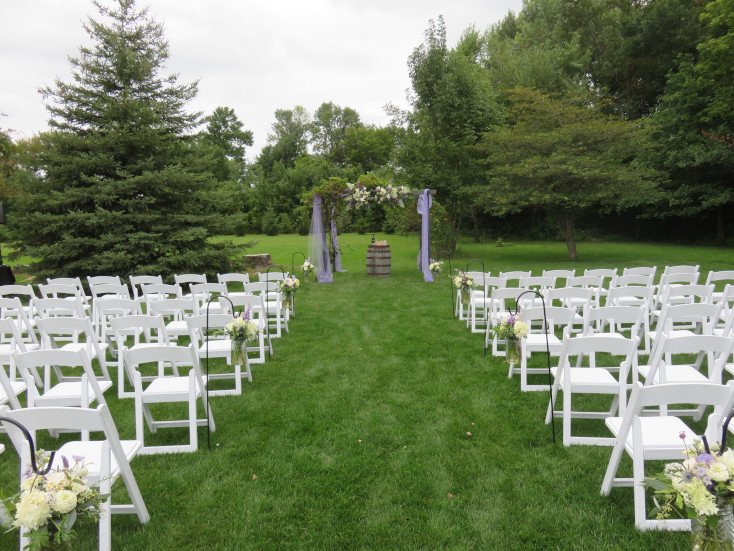Dealing with Crazy Relatives
Dealing with crazy relatives at your wedding ceremony can be a challenge. A variety of situations can occur at your wedding ceremony that need diplomatic solutions to keep everything moving forward smoothly.
Before the ceremony even begins, logistical issues can arise. When lining up the wedding party before one ceremony, the bride became flustered when she noticed that the seats reserved for her parents were occupied. An aunt was sitting in one of the seats, next to the grandfather’s wheelchair. With the bride’s concurrence, I approached the woman and politely asked her to move down the row, as these two seats were reserved for the bride’s parents.
Her response surprised me. She said they could take other open seats; that she was assisting the grandfather. I told her the bride’s mother (also the grandfather’s daughter) would be sitting there in just a moment. I suggested she move either further down the first row, or to the second row with her adult children. Then, I quietly stood there. After a few moments she moved further down the row. I returned to check in with the bride, and then started the ceremony. Having ushers who can either seat guests or oversee the seating of guests could have prevented this situation.
Cameras and phones can also prove troublesome in the wrong hands. At another wedding, an aunt of the groom stepped into the aisle to catch pictures of the bride as she entered. She didn’t realize (I hope) that she stepped directly in front of the professional photographer who was also trying to capture that image. These moments happen so quickly during a ceremony that it is difficult for photographers to relocate for an unobstructed view. To prevent dealing with crazy relatives like this one, I can request that guests put their phones and cameras away for the ceremony so they can be fully present with the couple. This is called an unplugged ceremony. It also ensures that any professional photos taken during the ceremony include the guests’ faces, and not a sea of upraised phones.
Dealing with crazy relatives takes some thought and preventive actions. You can’t think of everything, but some situations can be anticipated and avoided. Working with an experienced celebrant can help you consider and even react to the situations that arise unexpectedly.

